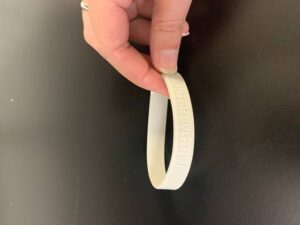Vanderbilt Health’s DNA: Discoveries in Action released a new episode, “How To… Fill In The Knowledge Gap.” This series explores the various facets of nature to build a blueprint that showcases how the current environment impacts health.
During this episode, a new set of Vanderbilt Health experts dive deeper into how vehicle fossil fuel emissions impact health and what an electric vehicle fleet will do to improve population level health. Experts will also examine a groundbreaking observational study that explores how elements and particles in the air have long term impacts on health and well-being.
Guests in this episode are evaluating and studying various facets of nature to build a blueprint of how the current environment impacts health.
Meet the guests:
Tina Hartert, MD, MPH, Director, Center for Asthma and Environmental Sciences Research and Vice President for Translational Research
Hartert and Mike Vandenbergh, JD, Director of the Climate Change Research Network and Co-director, Energy, Environment and Land Use Program at Vanderbilt Law School, are leading a two-part study focused on electric vehicles (EVs). One part is geared toward understanding the how fossil fuel emissions from cars impact health and what an electric vehicle fleet will do to improve population-level health. The second part of the project is focused on understanding barriers to uptake and acceptance of EVs in the United States.
“Electrification of transportation is clearly accelerating in the United States and around the world. I think what’s not well understood is how electrification of vehicles can contribute not only [to] climate, but to very important health effects on human populations as well. The majority of our world lives in areas that are too polluted compared to what guidelines are for safe living,” said Hartert.
Wei Zheng, MD, PhD, MPH, Director of the Division of Epidemiology, and Director of the Vanderbilt Epidemiology Center at Vanderbilt University Medical Center; Associate Director for Population Sciences Research at the Vanderbilt-Ingram Cancer Center
Zheng and colleagues, as well as partners across the Southeast, are leading a groundbreaking observational study as to how the elements and particles in the air impact health and well-being over the long-term. They are looking for carcinogens, but are also interested in relationships to Type 2 diabetes and heart disease.

People will wear a wrist band that catches particles — similar to sticky tape catching flies — and that will get analyzed, and the participants will be tracked over the long-term.
“Our study is the first large study to comprehensively evaluate the exposure level of study participants and relate the exposure to disease risk. This is really kind of huge advance in this science,” said Zheng.
Southern Environmental Health Study is actively recruiting 50,000 people to understand how our environment and our day-to-day experiences may impact our health. The study is a collaboration of scientists and healthcare providers across the Southeast.
Find out more, and help scientists learn about us!
Jeffrey Upperman, MD, Surgeon-in-Chief at Monroe Carell Jr. Children’s Hospital at Vanderbilt
Upperman is a trauma preparedness expert and has looked at the use of emergency apps in extreme weather instances, particularly tornadoes. However, he and his colleagues im Nashville — and across the country —are mindful that it’s not only extreme weather that lands adults and children in emergency departments.
“You have to take the full spectrum of nature, which includes human nature, and understand where are we at as a society. We have to be prepared for chaos and mass movements of people due to — whatever you want to call it: our social fabric being ripped, our social fabric being torn. And then on top of that, you sprinkle in natural disasters,” said Upperman. “Then it becomes a very complex equation. So it’s not just a matter of the randomness, it’s paying attention to all of those things that could disrupt your happy life. I think we need to grow a healthy respect for all forms of nature.”





